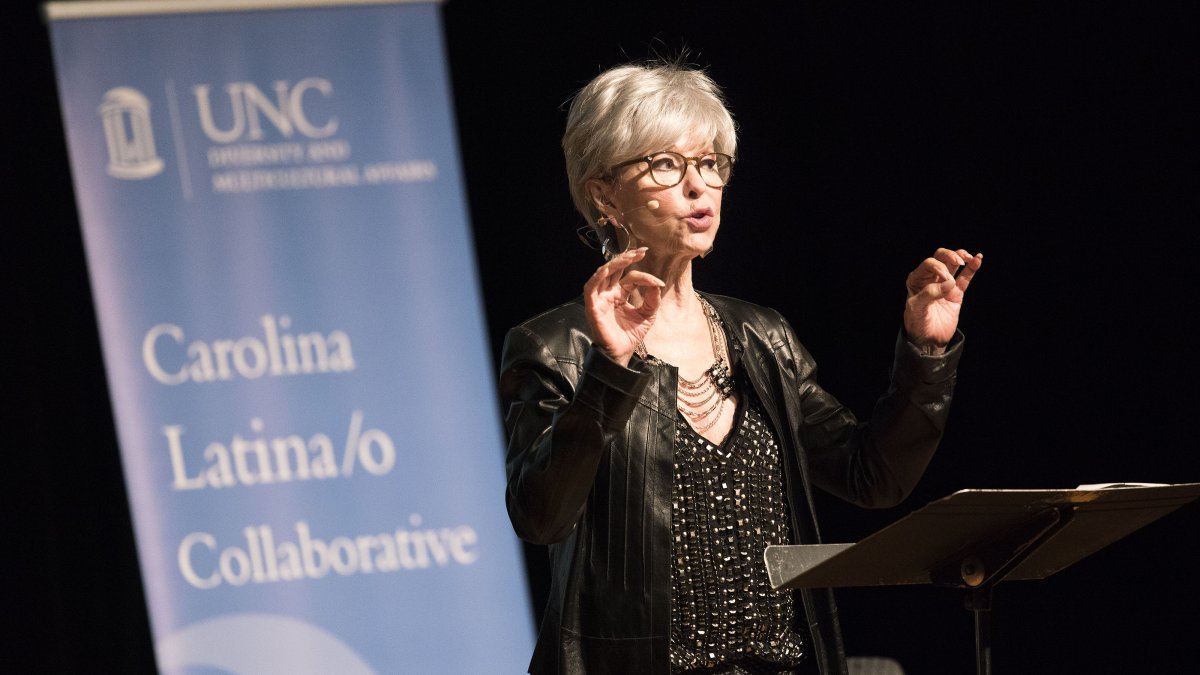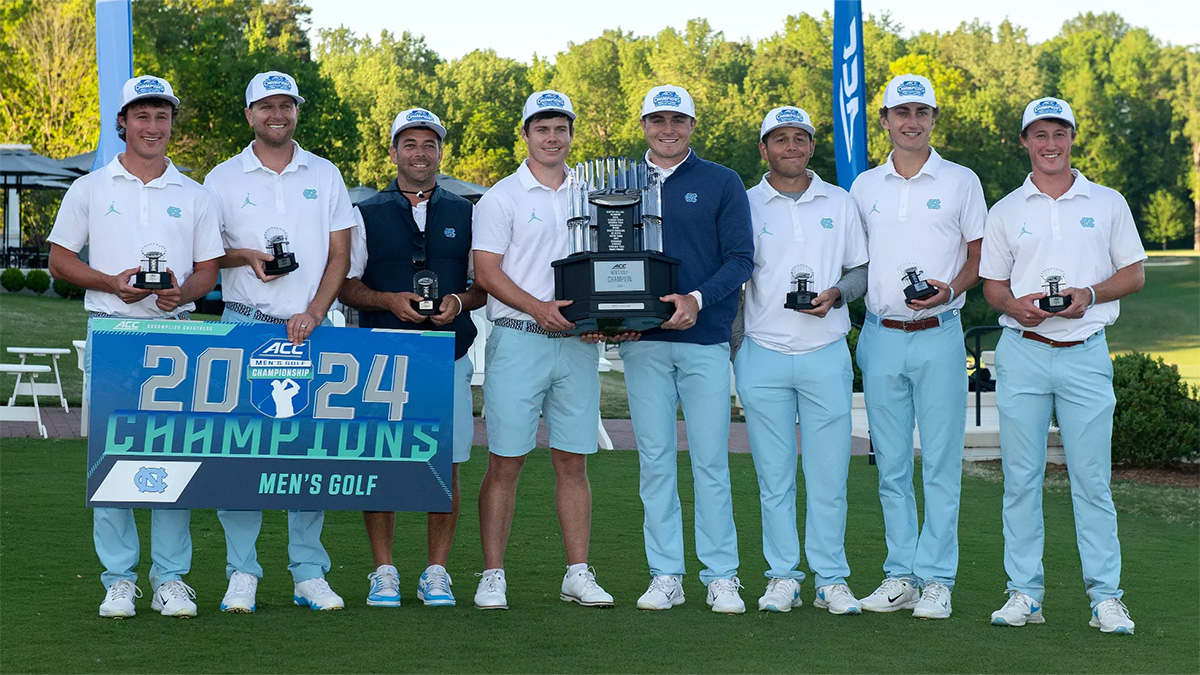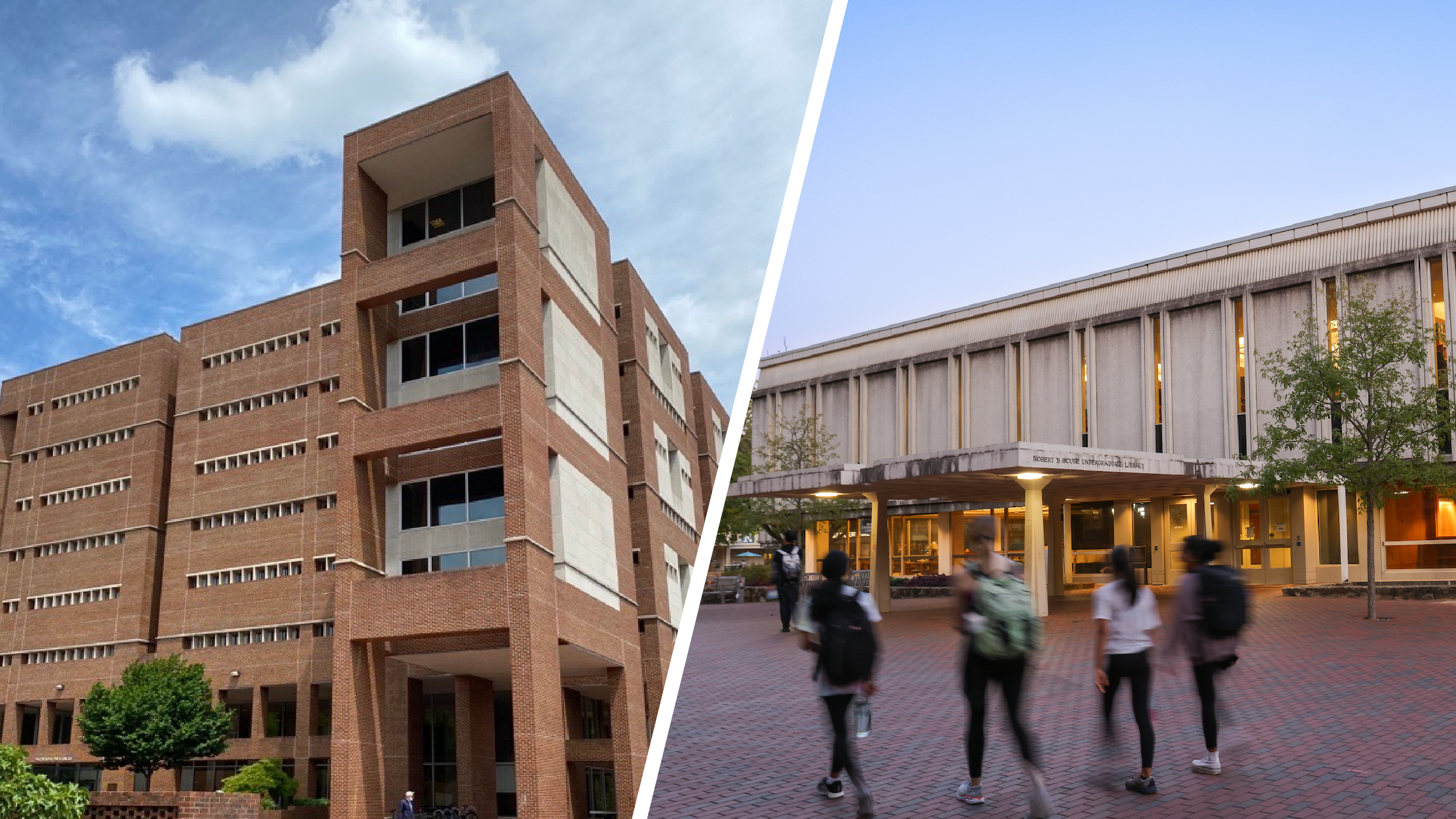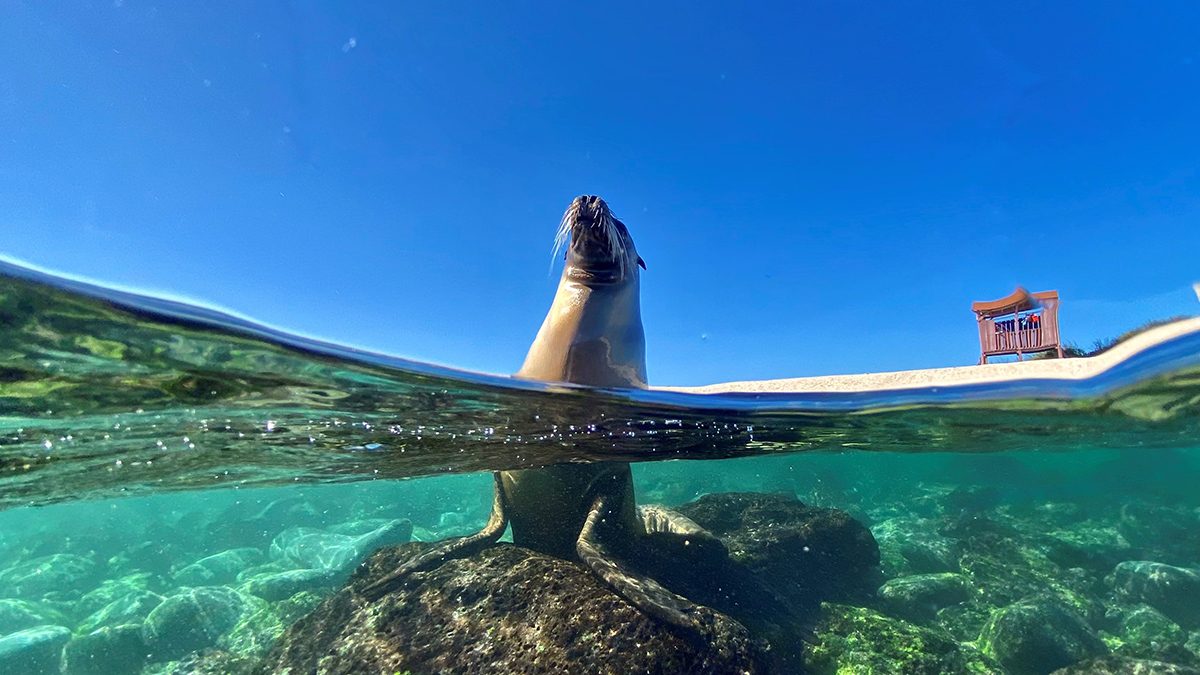Moreno still a Latina trailblazer in her 80s
To kick off Hispanic Heritage Month, Rita Moreno shared stories of her personal and professional life, always going for a laugh even when talking about her struggles.

The average 84-year-old doesn’t wear a black leather jacket, skinny pants and boots studded with silver, the same color as her big hoop earrings and short hair. But Rita Moreno – one of only 12 entertainers to win competitive Emmy, Grammy, Oscar and Tony awards – is no ordinary 84-year-old.
“The leather surprised you, didn’t it?” she said, after receiving a standing ovation from about 200 fans in the Student Union’s Great Hall. Moreno, a Puerto Rican-American, came to Chapel Hill on Sept. 30 to deliver the keynote address kicking off the campus celebration of Hispanic Heritage Month. The talk was sponsored by the Carolina Union Activities Board in collaboration with the Carolina Latino/a Collaborative, the Scholars’ Latino Initiative, Teatro Latino and the Latina/o Studies Program.
For the next hour, Moreno shared stories of her personal and professional life, always going for a laugh even when talking about her struggles as an immigrant in New York City and a Latina in mid-century Hollywood. Twice she broke into song.
“Dream when you’re feeling blue. Dream – that’s the thing to do,” she crooned, after telling the audience how, as a child, she liked to go out on the fire escape to listen to the radio and pretend.
‘My blanket is like a magic carpet’
“My blanket is like a magic carpet, and when I close my eyes, I can go anywhere and be anybody,” she said.
At the time, she and her mother were living in poverty in New York. They had emigrated from Puerto Rico in 1936, when Moreno was only 5 years old and thought Lady Liberty’s torch was “the biggest ice cream cone I’d ever seen.”
Her mother worked as a “sweatshop seamstress,” but dreamed of better things for her talented daughter. She sent Rita to dance class, sewed costumes for her and allowed her, as a teen, to travel with a group of entertainers as their “Spanish dancer.”
A talent scout spotted her and arranged a meeting with movie mogul Louis B. Mayer of MGM Studios. Moreno and her mother spent hours before the meeting trying to make Moreno look like the current exemplar of feminine beauty, actress Elizabeth Taylor. Moreno straightened her “Puerto Rican curls,” cinched in her waist and powdered her brown face.
“She looks like a Spanish Elizabeth Taylor!” Mayer declared. Recalling the moment, Moreno pumped both fists and shouted, “Yes!”
But once Moreno arrived on the MGM lot, she said, she found herself cast only in minor ethnic roles, a “dusky maiden” of any nationality who was “ignorant, uneducated and morally bankrupt.”
It wasn’t until Gene Kelly cast her in 1952’s Singing in the Rainthat Moreno played a non-ethnic role, Zelda Zanders. But not long after that, MGM didn’t renew her contract and she found herself starting over again at 20th Century Fox with ethnic bit parts.
She persevered. “Hope is an essential part of my DNA,” Moreno said. And in 1961, she got the role she was born to play, fiery Anita in the musical West Side Story, a Puerto Rican-American but not a stereotype. She received an Oscar for her performance.
“I was 27 years old and I had never played that kind of part,” she said. “That role would change my life and career forever.”
But not in the way she might have expected. Even with the Oscar, she was still offered mostly minor ethnic roles in Hollywood, so she turned to the theater. She also got involved in political causes, sharing the stage with Martin Luther King Jr. at the March on Washington.
And she got married, to “the most wonderful man in the world,” Jewish cardiologist Leonard Gordon, who didn’t know she was a famous actress when he asked her out. They had a daughter, and Moreno turned her focus to television, working from 1971 to 1977 on the PBS children’s show, The Electric Company. She also managed to win a Grammy (1972), a Tony (1975) and a couple of Emmys (1977, 1978).
After 1981, Moreno didn’t make another movie for the next 10 years. When she was finally invited to audition for a film, the first Latina to win all four major entertainment awards was devastated to discover that the part wasn’t a major role, but a brothel madam with two lines of dialogue in Spanish.
“I was stripped of every ounce of dignity,” she said. “I was 6 years old again.”
She continued to work in television, with occasional roles in movies or onstage, and is about to launch a new series on Netflix, a reboot of the comedy One Day at a Time, this time with a Cuban-American family. Moreno plays Lydia, the grandmother.
In a question and answer session after her talk, Moreno was asked about the status of women of color in today’s Hollywood. “The door is really open now. Now we’ve got to get the important roles. What we really need, I think, in the film industry, is writers who will write those roles.” Audience members snapped their fingers in agreement.
In closing, Moreno encouraged the Latinos and Latinas in the audience to develop a positive image. “Understand that you have value and that you have worth,” she said, eliciting more finger snaps. “Nobody should allow anybody to tell you what is good for you. That’s the dream.”




